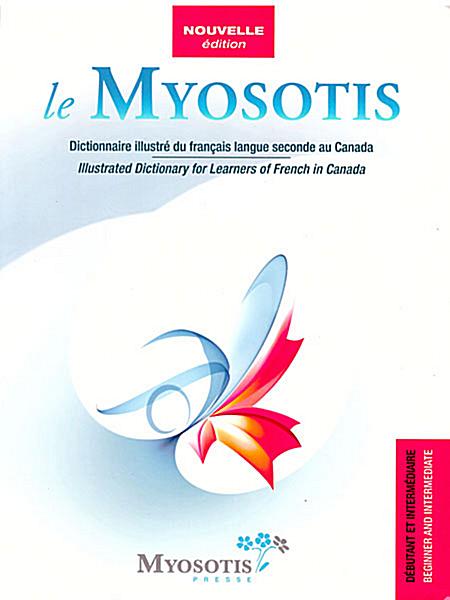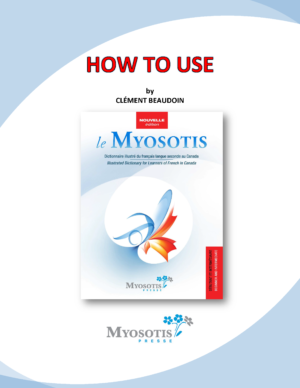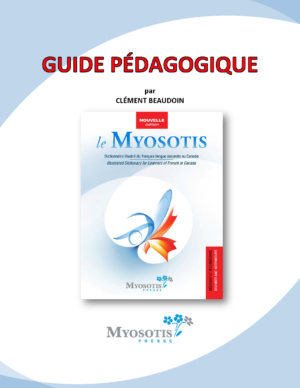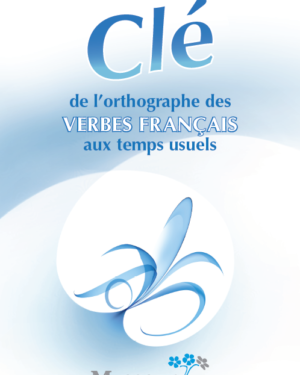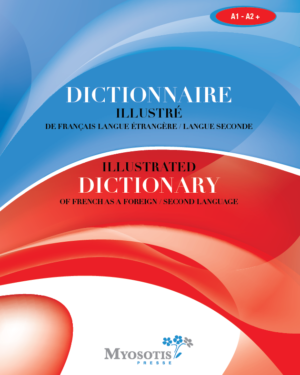Description
“As an experienced second language teacher, I can honestly say this is one of the best dictionaries I have seen for second language learners. It does not surprise me that it was conceived and written by a French teacher. I have recommended it to all my junior French students and it has become a useful fixture in my classroom. Although it is lightweight and easy to carry, it contains a wealth of information inside. It includes the expected dictionary content, but it also has interesting cultural information and vignettes, colored illustrations, irregular verbs conjugated in full at their entry, examples of how the chosen word is used in different sentences, variants of irregular verbs presented as separate entries, a multitude of idiomatic expressions, the masculine and feminine forms spelled out, synonyms, related words and antonyms listed with the chosen word so as to develop vocabulary, an English-French index, and the basic rules of French grammar presented throughout in chart form. The layout, content and visual presentation are so inviting that students choose to use their “Myosotis” over the other traditional dictionaries or online translators.”
Ms. Marti L. Player, M.Ed
International Languages Department Head
Elgin Park Secondary, Surrey, B.C.
“As an educator, and in my current role, it is my opinion that le Myosotis is the best resource that I have seen for committed FSL learners.”
James Shea
Former Executive Director of Canadian Parents for French
“Après consultation et analyse, il semble bien que, à l’heure actuelle, le meilleur dictionnaire sur le marché pour les élèves de FL2 soit Le Myosotis. C’est le premier véritable Dictionnaire illustré du français langue seconde au Canada.”
Joan Netten
Memorial University of Newfoundland
Claude Germain
Université du Québec à Montréal
Over the past few decades, most of the energies of FSL textbook writers have been invested in the development of curriculum guides and teaching materials for the ever-changing methodologies introduced in the field of second language didactics.
Surprisingly, though a good dictionary constitutes a natural complement to teaching materials, no-one to date, as far as I can ascertain, has taken the time to produce a tool based on a corpus of the oral and written texts actually used by the FSL learner.
One need only read the introduction to the present dictionary to realize the undeniable usefulness of a tool based on the themes and linguistic content of those approved teaching materials used within the different Canadian educational institutions.
What’s more, one quickly realizes that this dictionary is more than a mere reference tool. The numerous charts and language boxes, the illustrative examples, the lexical and grammatical comments, the cultural vignettes and the illustrations constitute a rich bank of resources capable of clarifying certain difficulties with the French language as well as enriching and facilitating the learning process.
The development of such a tool requires a good deal of expertise and experience in the fields of second language pedagogy and educational publishing, as well as in the conception and production of teaching materials. Clément Beaudoin possesses this necessary combination of skills and experience for the completion of a project of this magnitude.
With over forty years of experience in the field of FSL didactics, I can only express my enthusiasm for the quality of the finished product. I congratulate the author and express my hope that this dictionary will achieve a measure of success in harmony with the patience, hard work and intellectual rigor invested in its preparation.
Pierre Calvé, Ph.D.
Professor and Dean of Education (retired)
University of Ottawa
Flipbook – click to view
How to Use | Pedagogical Guide – Forget-me-NotThis 42-page booklet, which is available in English and French, is a guide to the use of the Forget-Me-Not dictionary. It is intended to develop dictionary skills, and make learning French both an enjoyable and enriching experience. Each of the 13 lessons briefly explains a feature of the dictionary and is followed by activities and answer keys. Author : Clément Beaudoin |
| Table of contents | Table of Contents |
| 1. Using the right section in the dictionary | 1. Using the Right Part of the Dictionary |
| 2. Alphabetical order | 2. Alphabetical order |
| 3. Parts of speech | 3. Categories of words |
| 4. Finding the meaning | 4. Finding the meaning of a word |
| 5. Word form variations | 5. Variations in the form of words |
| 6. Alternative spellings | 6. Spelling variants |
| 7. Homographs | 7. Homographs |
| 8. French Accentuation | 8. Accents in French |
| 9. Verb spellings | 9. Spelling of verbs |
| 10. Synonyms and related words | 10. Synonyms and Related Words |
| 11. Antonyms and opposites | 11. Antonyms and Opposite Words |
| 12. Vocabulary building strategies | 12. To enrich your vocabulary |
| 13. Cultural vignettes | 13. Cultural vignettes |




